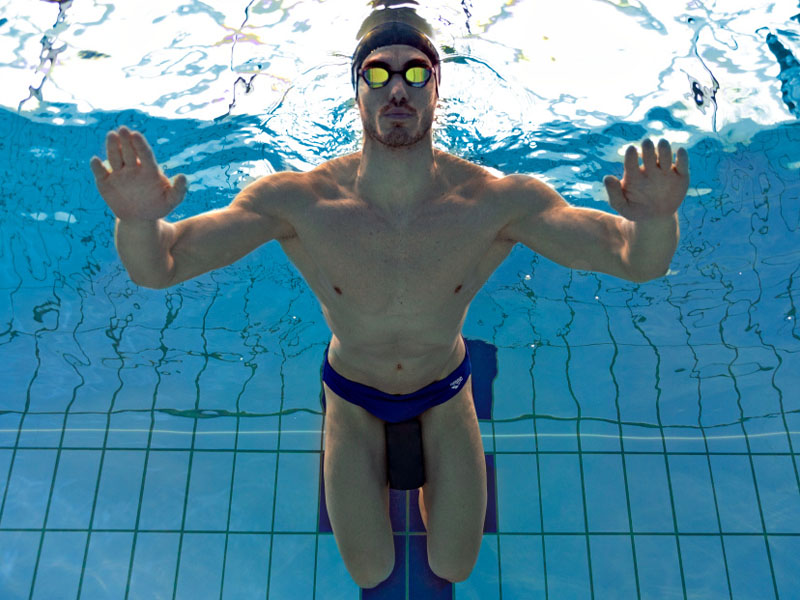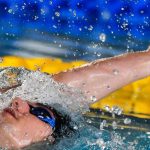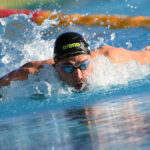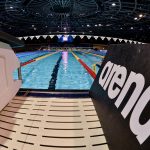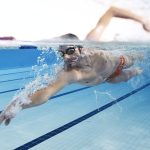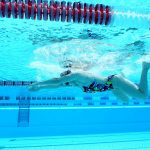How to Use a Pull Buoy to Improve Your Swimming Technique
There is no doubt that upper-body strength is an asset to you as a swimmer. Using a pull buoy is one of the best ways to target your arms during training. Learning how to use a pull buoy properly will help you increase your pull strength and improve your muscle endurance, meaning you will be able to swim faster and for a more extended period of time.
We’ll explain everything you need to know about using a pull buoy. First, we’ll cover what a pull buoy is and the benefits of training with one. Then, we’ll go over some suggestions on how to start using this training aid and how to improve your body position while using one.
What Is a Pull Buoy?
Just like a kickboard is a foam flotation tool that helps you target your legs, a foam pull buoy helps you train your upper body. This figure-eight-shaped piece of foam is placed between your legs and adds buoyancy to your lower body. This added buoyancy means you do not need to kick as much as you usually do, and your hips and legs will not sink.
Because you don’t have to worry about kicking, you can focus entirely on using your arms to propel yourself through the water. This creates a challenging workout for your upper body and allows you to develop strength and endurance.
What Are the Benefits of Using a Pull Buoy?
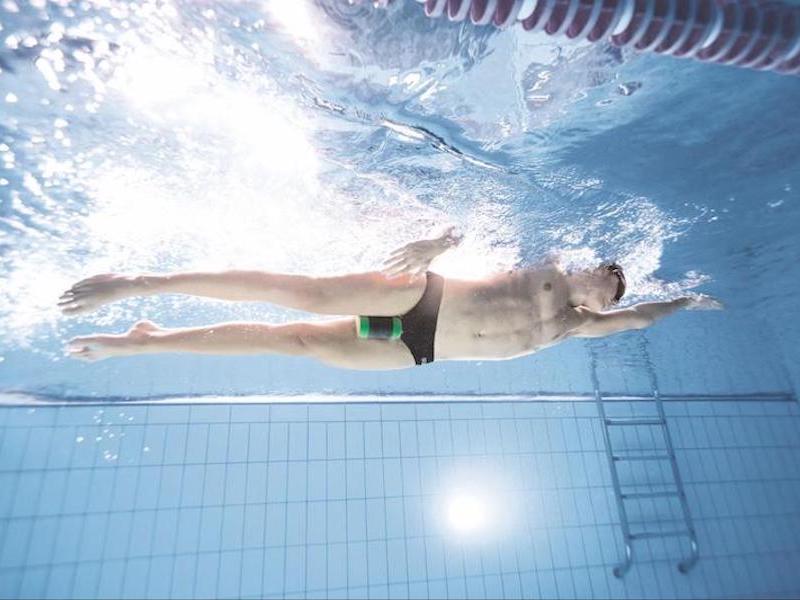
Whether you are a triathlete swimming in open water or a sprinter swimming in a pool, a pull buoy is an essential piece of swimming equipment that can make you a better swimmer.
The primary benefit of using a pull buoy is that it allows you to focus on training your upper body. It also provides an excellent platform for you to improve your swimming technique.
Target Your Upper Body
During your regular swim stroke, a significant amount of power comes from your kick. One study found that young male swimmers rely on their kick to generate 29.7% of the total force generated while swimming. Young female swimmers use their kick for 33.4% of their overall propulsion.
When you train with a pull buoy, you will not receive much propulsion from your legs, so your arms are required to generate more force than they usually do. The added difficulty of this type of training is an excellent way to challenge your upper body so you can get stronger and obtain greater levels of endurance.
Improve Your Technique
A pull buoy allows you to focus on your upper-body stroke technique since you don’t have to worry much about kicking. You can become aware of each movement made by your arms and shoulders, and work toward adjusting your form to optimize the efficiency of your stroke.
A pull buoy also allows you to swim more slowly. The additional float you receive from using this piece of equipment means you do not need to swim fast in order to keep your body elevated in the water. Swimming slowly lets you work on your mechanics in a methodical way so you can fine-tune your technique.
How to Use a Pull Buoy
Whether you are a beginner or training for a triathlon, a pull buoy is an excellent piece of equipment to incorporate into your swim training. You can use it by itself or in adjunct with other training tools. However, you’ll want to ensure you don’t become too dependent on using training aids. Let’s go over how to use a pull buoy properly:
- Do not kick excessively: A gentle leg kick is advised to help with upper-body and hip rotation during the freestyle stroke and backstroke.
- Do not tense your body: Let your legs float naturally. An unnatural position could cause cramps in your calves.
- Place the pull buoy in different positions: The pull buoy can be placed between your ankles, calves, knees, lower thighs, or upper thighs. Changing the position will improve your balance in the water.
- Use a pull buoy sometimes, not all the time: Just like any other training tool, it is important to use them sparingly and only to improve aspects of your stroke. You’ll still need to work on your regular stroke as a whole. After all, you’re not going to be competing while using a pull buoy.
As we mentioned, you can use a pull buoy by itself or with other training aids, like hand paddles or a snorkel.
Hand paddles will add more resistance to your swim stroke. Using hand paddles with a pull buoy is excellent for developing strength in your upper body.
A snorkel is a good tool for long-distance swim sets and training proper body alignment. Use a snorkel with a pull buoy to work on good body posture in the water.
How to Improve Your Body Position
To improve your body position, pay attention to these three key points that can be corrected using the pull buoy:
1. Focus On Your Head Position
If your head is too high or too low, it will affect the position of your hips and legs, which may increase drag.
Place the pull buoy between your thighs. This will help your legs float better and allow you to concentrate more on your head position. Try focusing on the black line on the bottom of the pool, keeping your eyes at an angle of approximately 45 degrees underwater. This will allow you to break the water surface better, creating less drag and greater forward propulsion.
2. Focus On Your Shoulder Position
A very common mistake when swimming freestyle (front crawl stroke) or backstroke is the excessive rotation of your shoulders. This results in an improper catch phase of the arm stroke and also an irregular leg kick in an attempt to keep your body balanced.
Place the pull buoy between your knees and imagine keeping your upper body inside a rectangle. The aim is to keep your body in a straight line, eliminating any excessive lateral motion and making your arm stroke more symmetrical. The optimal degree of shoulder rotation is between 35 degrees and 45 degrees.
3. Focus On Core Strength
It is very important to focus on strengthening your core. This connects your upper body to your lower body, creating symmetry between your shoulders and hips. If this area is too weak, your swim stroke will not be very efficient.
Place the pull buoy between your ankles and try to focus on your core. Try to relax your body as much as possible. Imagine stretching your head as far forward as possible and pointing your feet behind you. This will help you extend your upper body and relax your core to stabilize your backbone.
Grab All Your Swim Gear for a Pull Set
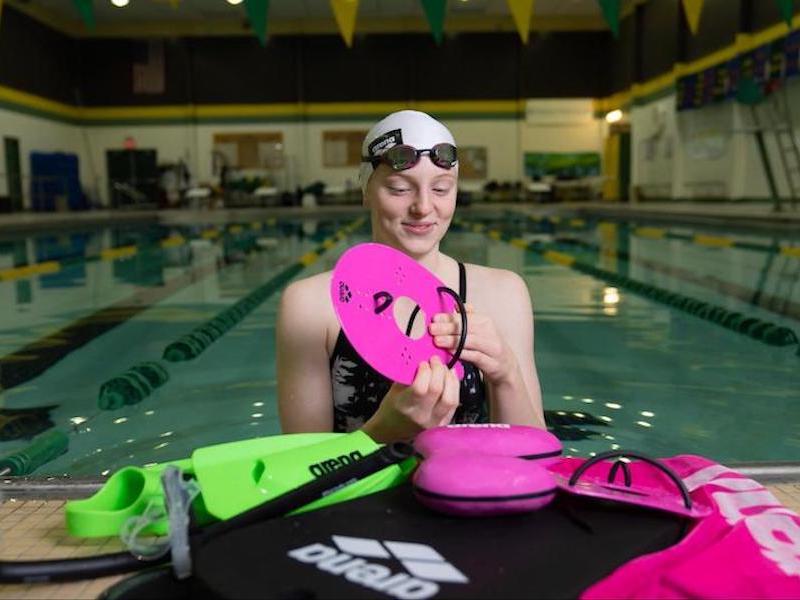
Grab your swim cap, goggles, and your pull buoy, and get ready for an excellent pulling swim set! Now that you know what a pull buoy is and how to use one properly, you can start implementing this tool into your training routine. From increasing upper-body strength to improving your body position, this device is your ticket to boosting your overall swimming performance.
If you’re looking to add training tools to your swim workouts, be sure to check out arena’s online store.
